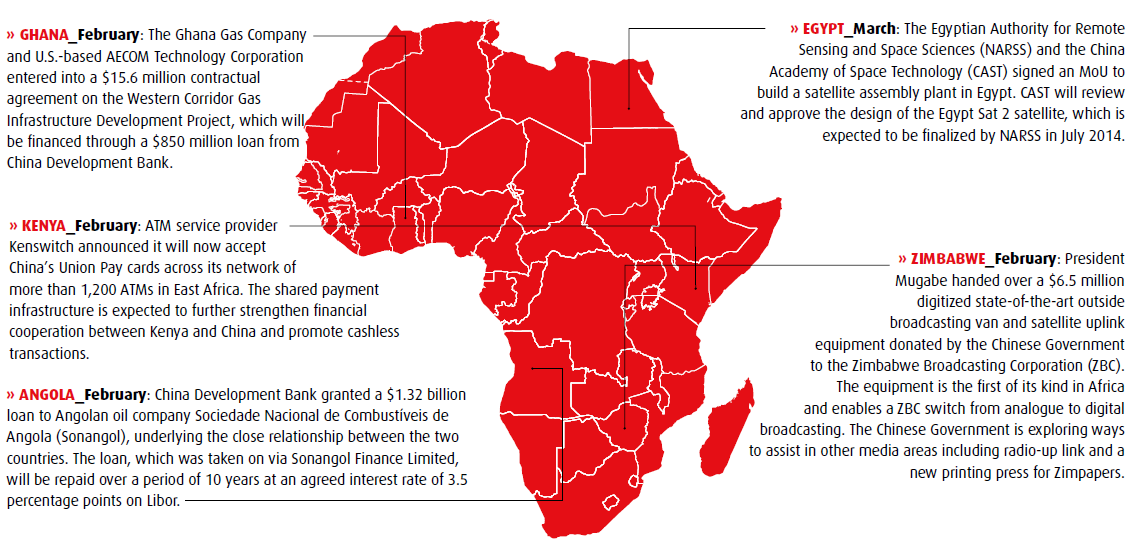|

Paving the Way for More Growth
Reliable ground transportation remains a problem in Africa, with potholed roads and missing rail links holding back economic growth. African intra-regional trade accounts for just 13 percent of total commerce, compared with 53 percent in emerging Asia. Landlocked countries such as Uganda and Niger are suffering the most. Transport costs can make up 50-75 percent of the retail price of goods in Malawi, Rwanda and Uganda. For example, shipping a car from China to Tanzania costs less than transporting the same car from Tanzania to neighboring Uganda.
Countries with vast inland areas are also feeling negative effects from underdeveloped or underinvested infrastructure. With more than 5,000 km of track crisscrossing the country, Sudan once boasted Africa's largest railway network half a century ago. However, after decades of mismanagement and neglect, most of the country's rail track is out of service. Recognizing the need to upgrade its transport infrastructure to share the fruits of Africa's booming economy, the Sudanese Government, with the help of Chinese money and expertise, is aiming to rebuild the country's railways.
China, one of Sudan's biggest investors, recently agreed to replace and repair old freight and passenger trains. Work to renew the rail network commenced in 2012, when China's Shanghai Hui Bo Investment Co. opened a brand new plant in north Khartoum opposite the Sudanese capital's main train station, to produce 1,200 concrete sleepers a day. The modernization of Sudan's railways will undoubtedly boost the export of livestock and agricultural products such as cotton and gum arabic, which currently account for 20 percent of total exports. Overall, this will help to diversify Sudan's economy after the country lost most of its oil production capacity following its split from South Sudan in 2011. Rail transport is cheaper, faster and safer and has a larger capacity than expensive roadway. Chinese SOEs have also signed agreements to build a new airport in Khartoum.
Meanwhile, in northern Africa, transportation by air or sea are the only reasonably safe passages to the rest of the continent. The few roads that cross the vast Sahara Desert are either broken or too dangerous due to rampant kidnapping. China's Ministry of Foreign Affairs recently pledged that China will work more closely with the continent to bolster its security and prosperity. Encouraged by the government, Chinese companies are gaining the courage and capability to explore Africa's "less paved roads" in frontier markets. In 2011, fast-rising Ghana signed a $6-billion contract with a Chinese firm to build a new railway across the country.
While Chinese investments in Africa are now more diversified, the service sector will be newly highlighted during the next wave of investment. Service industries such as tourism and air transportation will benefit from better ground transportation and ultimately help ease the trade deficit between China and Africa. More Chinese tourists are also interested in seeing Africa's vast landscapes with their own eyes. According to the South African Tourism Ministry, around 100,000 Chinese people visit South Africa each year, with more than 60,000 Chinese visits in the first half of 2012 alone, a 68-percent increase from the same period a year earlier. China has already overtaken France as the country's fourth largest source of tourists.
The ChinAfrica Econometer is produced by The Beijing Axis, a China-focused international advisory firm operating in four principal areas: Commodities, Capital, Procurement, and Strategy.
For more information, please contact:
Daniel Galvez, danielgalvez@thebeijingaxis.com
www.thebeijingaxis.com |